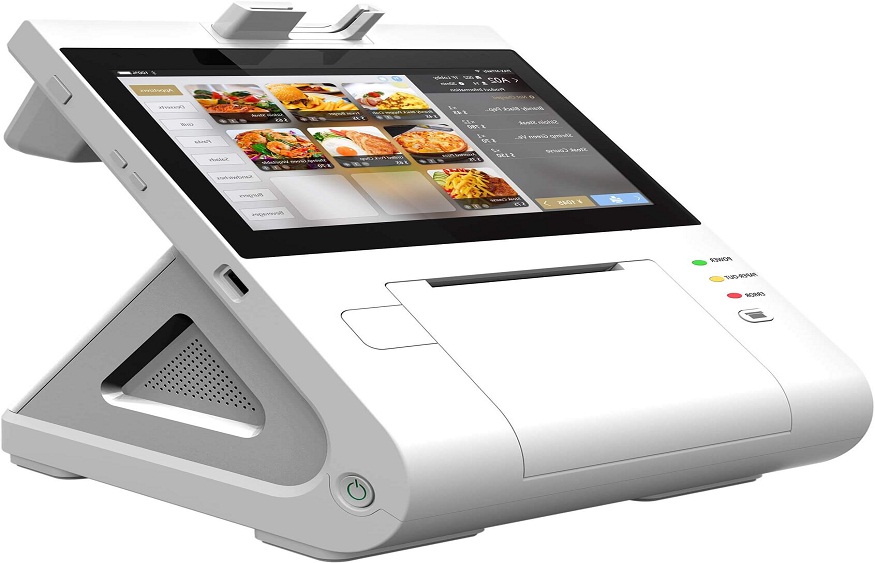In today’s fast-paced business world, Point of Sale (POS) systems are getting smarter thanks to Artificial Intelligence (AI) and Machine Learning (ML). These technologies are changing how stores and restaurants operate, making things easier for both business owners and customers. Let’s explore how AI and ML are revolutionizing POS systems and what this means for businesses.
What are AI and Machine Learning?
Before we dive in, let’s break down these terms:
- Artificial Intelligence (AI): Computer systems that can perform tasks that normally require human intelligence.
- Machine Learning (ML): A type of AI that allows systems to learn and improve from experience without being explicitly programmed.
Now, let’s see how these technologies are making POS systems more powerful and useful.
Smarter Inventory Management
One of the biggest challenges for any business is keeping track of inventory. AI-powered POS systems are making this much easier:
- Predicting what products will be popular based on past sales, weather, and even local events
- Automatically reordering stock when it’s running low
- Suggesting when to put items on sale to avoid overstocking
This means fewer empty shelves and less wasted products, which is good for both businesses and customers.
Personalized Customer Experiences
Modern NZ Pos systems are using AI to remember customer preferences and buying habits:
- Offering personalized discounts on items a customer often buys
- Suggesting products based on past purchases
- Creating targeted marketing campaigns for different customer groups
This personal touch can make customers feel valued and encourage them to return.
Fraud Detection and Prevention
AI is excellent at spotting patterns, which makes it great for detecting unusual activity that might be fraud:
- Flagging transactions that don’t fit a customer’s usual buying pattern
- Identifying potential credit card fraud in real-time
- Alerting staff to suspicious behavior at self-checkout kiosks
This helps keep businesses and customers safe from fraud, which is becoming more important in our digital world.
Dynamic Pricing Strategies
Some businesses are using AI to adjust prices in real-time based on various factors:
- Changing prices based on demand (like during busy lunch hours at a restaurant)
- Offering discounts on slow-moving items
- Matching competitors’ prices automatically
This flexible pricing can help businesses maximize their profits while offering fair prices to customers.
Improved Customer Service with Chatbots
Many restaurant kiosk machine systems now include AI-powered chatbots:
- Answering common customer questions quickly
- Helping customers find menu items that meet their dietary needs
- Providing information about wait times or special offers
These chatbots can handle simple tasks, freeing up human staff to deal with more complex customer needs.
Efficient Staff Management
AI can help businesses manage their staff more effectively:
- Predicting busy periods so managers can schedule the right number of staff
- Tracking employee performance to identify top performers
- Suggesting training for staff members who might need extra help
This leads to better service for customers and a more efficient workplace.
Smarter Self-Service Options
Self-service kiosks are getting smarter with AI:
- Remembering customer preferences for faster ordering
- Suggesting add-ons based on what the customer is ordering
- Adjusting the interface for accessibility (like larger text for older customers)
These smart kiosks can speed up service and improve the customer experience.
Enhanced Data Analysis
AI can process huge amounts of data quickly, giving businesses valuable insights:
- Identifying trends in sales data
- Spotting opportunities for new products or services
- Helping businesses understand customer behavior better
This data analysis can help businesses make smarter decisions about everything from inventory to marketing.
Predictive Maintenance
For businesses with lots of equipment, AI can help predict when machines might need maintenance:
- Alerting staff when a restaurant kiosk machine might need cleaning or repairs
- Scheduling regular check-ups for POS hardware
- Reducing downtime by catching problems early
This proactive approach can save businesses money and prevent frustrating breakdowns during busy times.
Voice-Activated POS Systems
Some newer POS systems are using voice recognition technology:
- Allowing staff to check prices or stock levels hands-free
- Enabling voice-activated ordering for customers with accessibility needs
- Making it easier to train new staff on using the POS system
Voice activation can speed up service and make POS systems more accessible to everyone.
The Future of AI and ML in POS Systems
As AI and ML continue to develop, we can expect even more innovations in POS technology:
- Even more personalized customer experiences
- Better integration between online and in-store shopping
- More accurate predictions about business trends
For NZ Pos Provider companies, staying up-to-date with these technologies will be key to offering the best solutions to businesses.
Conclusion: Embracing the Smart POS Revolution
AI and Machine Learning are making POS systems smarter, faster, and more helpful than ever before. For businesses, this means:
- More efficient operations
- Better understanding of customers
- Improved ability to compete in a changing market
For customers, it means quicker service, more personalized experiences, and often better prices. As these technologies continue to evolve, we can look forward to even more innovative ways that AI and ML will improve the shopping and dining experience for everyone.



